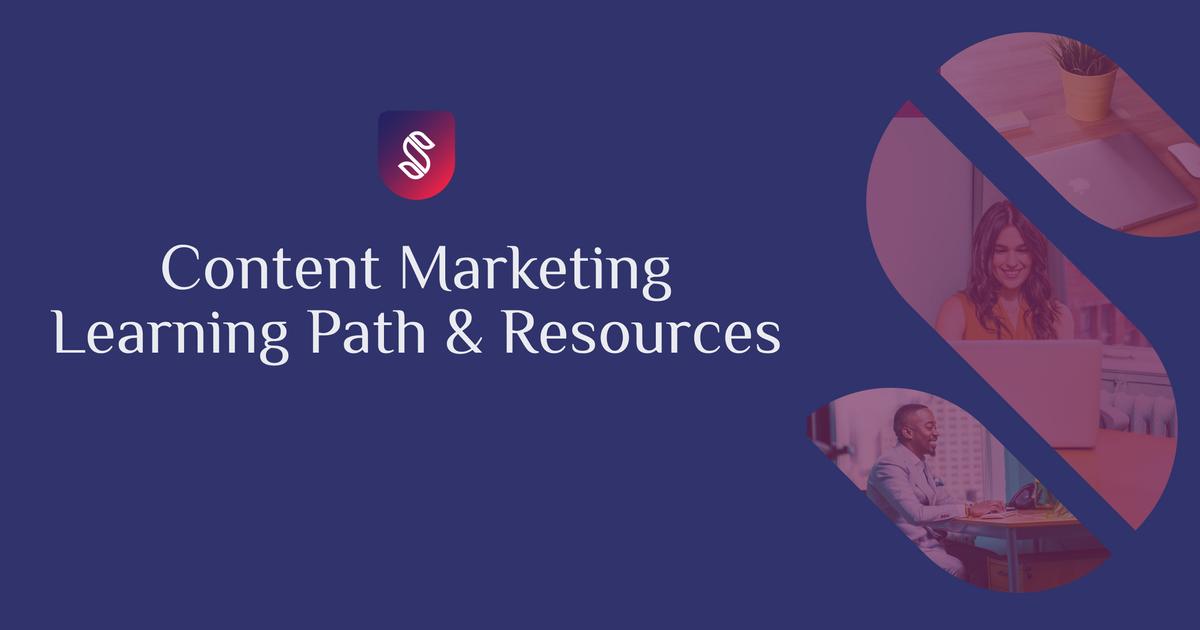Content Marketing Learning Path & Resources
Content marketing topics that you should learn about if you want to improve your knowledge and progress your career.

This article is intended for beginners and junior content marketers who want to improve their knowledge.
It is based on the T-shaped marketer model, so it covers topics both horizontally (wide, general knowledge) and vertically (deep knowledge).
Horizontal skills for a content marketer — the big picture
These are topics that you should be familiar with, but you don’t need to study them profoundly.
Since these skills form the top layer of knowledge for the T-shaped content marketer, you only need a broad, general understanding of the concepts, terms, and frameworks involved.
In no particular order, here are the areas of digital marketing that you should know at least the basics about.
Web analytics
Good resources here:
Conversion rate optimization
Good resources here:
UX design & UI copywriting
Good resources here:
E-mail marketing
Good resources here:
Demand / lead generation
Good resources here:
On-site SEO and link building
Good resources here:
Social media marketing
Good resources here:
Remarketing
Good resources here:
Branding & positioning
Good resources here:
Marketing automation & lifecycle marketing
Good resources here:
Vertical content marketing skills — the deep knowledge
These are the topics that you should master. They’re the most important skills for a content marketer, so don’t stop at a superficial level. Go deep, read as much as you can, practice and experiment.
I won’t recommend resources here. Instead, I’ll give some recommendations on what you should learn about or understand for each of these topics.
User research
How to find the pain points & challenges of your potential customers
Jobs-to-be-done framework
User intent research
Extracting pain points and motivations from interviews & sales calls
Identifying themes and topics that your audience cares about
How they find information: actions, questions & search queries in each funnel stage
Where they find information & where they educate themselves
What encourages/prevents them from buying
How to interpret analytics data to understand who your customers are
Keyword research
Head vs. long-tail keywords
Keywords that bring brand value and you should target
Search intent
Queries that show navigational, informational, transactional, and commercial intent
Search queries in each funnel stage
User journey
How a user starts searching for information and finds your website
User behavior on the website
When a user comes on your website, what is he looking for?
How to shape the user journey
How to push users through the funnel
What are new vs existing users doing on your website
Correlations: are users reading blog articles about X buying X products?
Are users reading the blog creating new accounts? Are they subscribing/downloading?
Gap analysis
What topics do you want to be known for and you’re not yet writing about?
What types of content/topics are our competitors not writing about?
Is this a gap that you can fill-in? Is there search potential?
Content ideation & topic modeling
Which themes are the most relevant?
What are users/magazines/competitors talking about, for your specific industry?
Which topics should you cover, for your target audiences in these industries?
How are the topics and sub-themes interconnected?
What’s the big picture of your website? What does the content model look like?
Competitor research
Keywords they are ranking for and you aren’t
Positioning, message, channels of competitors
Types of content they create for their website, blog, and social media
Content optimization
How to structure/optimize a page to improve the relevant content metrics
What keywords/queries should you optimize for, based on user intent
What keywords/queries should you optimize for, based on business goals
Page structure & copy experiments for CRO
Content marketing metrics & goals
Metrics that matter for content — time on page, pages per session, scroll depth, interactions with CTAs (download, buy, subscribe)
Which type of content performs better for these metrics?
Which topic/industry performs better for these metrics?
Where to find these numbers in your analytics tool and how to create a content report/dashboard
Tools that you can use for analyzing content performance
Content lifecycle
What are the stages that a content piece goes through, from ideation to publishing and optimization?
Who owns each of these stages? How do the workflows look?
CMS basics
Content strategy
What CS means and how it differs from content marketing strategy
Pre-requisites for implementing the content strategy
Content distribution & syndication
Which channels can you use for distribution? Where are your users?
Per channel, which type of content performs better? What are competitors sharing per channel?
Where can you syndicate content? How is this process structured?
Content curation
Where can you find content for curation
Tools to speed up your work
Workflows & processes for vendor content curation
Content calendar & roadmap
Building a content calendar and an editorial calendar
Content campaign models
Developing a content & campaign roadmap
I hope this gives you a bit of clarity and direction in your content marketing learning.
If you're interested in improving your content strategy and marketing knowledge, take a look at our upcoming training sessions.